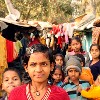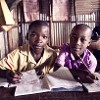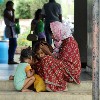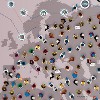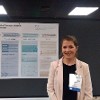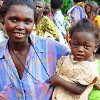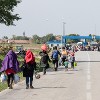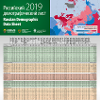News & Highlights from the World Population Program 2019
Differences in replacement level fertility point to inequalities
The percentage of the world’s population that is above or below the ‘replacement level of fertility’ has long been used as a measure of demographic development. A new study revisited how this metric is calculated and how useful it really is in terms of informing policy decisions. More
Informing better policies for an aging population
A new book by IIASA World Population Program researchers offers an opportunity to rethink how we define and measure aging to inform better policies for future societal and economic health. More
Science into public policy: UN and UK use IIASA research on population aging
IIASA’s research on population aging is increasingly being accepted and used. It brings 21st century tools to the study of 21st century population aging. More
A new Horizon2020 grant explores the patterns, motivations and modalities of migration
IIASA researchers from the World Population Program partner in a new European Union funded project that will have a focus on future migration in Europe. More
Improving governance is key for adaptive capacity
Governance in climate vulnerable countries will take decades to improve, substantially impeding the ability of nations to adapt to climate change and affecting billions of people globally, according to new research published in Nature Sustainability. More
The long arm of childhood conditions
Available research on the impact of a person’s socioeconomic status during childhood suggests that the circumstances one grows up in matter a great deal for adult health. The results of a new IIASA study supports the notion of a “long arm of childhood conditions” that remains invisible beyond mid-life but can affect health satisfaction later in life. More
Best paper award for former YSSP student Mr. Moradhvaj
Former IIASA Young Scientist Summer Program student Mr. Moradhvaj and his IIASA co-authors received the best paper award at the Second Asian Population Forum in Shanghai. More
Population aging to create pockets of climate vulnerability in the US
Population aging projections across the US show a divide between cities and rural areas, which could lead to pockets of vulnerability to climate change. More
Who is telling the truth about their health?
When researchers or policymakers ask health related questions – which they do a lot – they often rely on self-reported rather than tested health data. IIASA researchers looked into how reliable this type of data is for research and found that, depending on country or age, self-reported data could be highly biased. More
Sergei Scherbov receives Honorary Doctoral Degree in Liberal Arts
In recognition of his knowledge and expertise in Population Studies and the outstanding contribution he has made in the field, Chulalongkorn University honors Sergei Scherbov with a Doctoral Degree in Liberal Arts (Honoris Causa). More
The future is now: Science for achieving sustainable development
The United Nations launched a new Global Sustainable Development Report that is based on the work of 15 independent scientists, among them IIASA World Population Program Director Wolfgang Lutz. More
Addressing causes of mortality in Zambia
Despite the fact that people in sub-Saharan Africa are now living longer than they did two decades ago, their average life expectancy remains below that of the rest of the world population. A new study looked into the importance of various causes of death in Zambia and how eliminating the most prominent of these would impact life expectancy in the country. More
United States Aging Data Sheet 2019
The first US Aging Data Sheet comprehensively presents traditional and new measures of aging, developed at IIASA, for all US states. More
Examining the link between caste and under-five mortality in India
In India, children that belong to disadvantaged castes face a much higher likelihood of not living past their fifth birthday than their counterparts in non-deprived castes. IIASA researchers examined the association between castes and under-five mortality in an effort to help reduce the burden of under-five deaths in the country. More
Wolfgang Lutz elected member of the Academia Europaea
IIASA World Population Program Director Wolfgang Lutz was successful in the competitive membership election process of the pan-European Academy of Humanities, Letters, Law, and Sciences. More
Education trumps age-structure in terms of providing a demographic dividend
The relationship between population changes and economic growth has been a controversial topic among demographers for many years. A study published in the Proceedings of the National Academy of Sciences of the United States of America (PNAS) today, challenges the dominant view that fertility decline and changes in age structure are key drivers of economic growth. More
Is there a demographic need for migration in Europe?
A European Commission-IIASA flagship report has found that an increase in the EU population aged 65+ is certain – regardless of higher fertility or migration. However, raising labor force participation (particularly for women) and improved education of natives and migrants have the power to nullify aging-related worries. More
Poster Award for Sonja Spitzer
IIASA researcher Sonja Spitzer and colleagues received the poster winner at the Population Association of America Annual Meeting 2019. More
Wittgenstein Centre Data Explorer Version 2.0
Data on the educational attainment of the population of some 200 countries (and regions) are now available in the Version 2.0 of the Human Capital Data Explorer. More
New measures show population aging likely to end this century
Policymakers have long been concerned about the effects of an aging population on society, but researchers at IIASA have developed a new tool that shows population aging will likely end by the middle of the century in high-income countries. More
Stalled fertility declines linked to disruptions in women’s education in Africa
A slowdown in fertility decline in sub-Saharan Africa was partially caused by disruptions in women’s education in the 1980s, according to new IIASA research. More
New study establishes causal link between climate, conflict, and migration
IIASA-led research has established a causal link between climate, conflict, and migration for the first time, something which has been widely suggested in the media but for which scientific evidence is scarce. More
Russian Demographic Data Sheet 2019
The second Russian Demographic Data Sheet provides a comprehensive look at key demographic indicators and main population trends for all Subjects of the Russian Federation, including population projection for 2050. More

CONTACT DETAILS
Interim Deputy Director General for Science Directorate - DDG for Science Department
Principal Research Scholar and Senior Program Advisor Population and Just Societies Program
Principal Research Scholar and Senior Program Advisor Social Cohesion, Health, and Wellbeing Research Group - Population and Just Societies Program
Wittgenstein Centre Data Explorer
PUBLICATIONS







